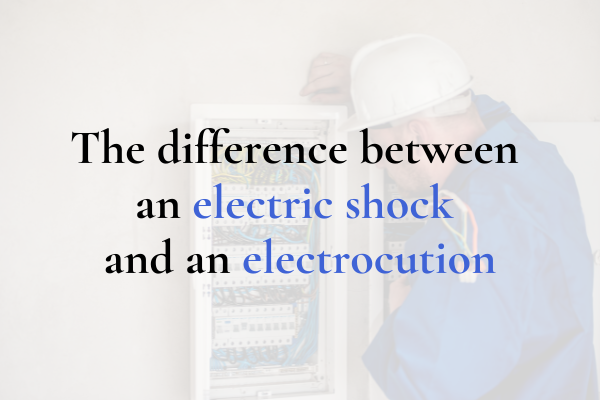An electrocution results in death. While people survive getting shocked, they may struggle for the rest of their lives with burn scars, seizures, chronic pain, severe headaches, nerve damage, paralyzed limbs, memory loss and other forms of brain damage. Some injuries due to electric shocks also result from falls, as electricity can knock a person unconscious or knock someone several feet through the air.

Electrocutions are relatively rare — fewer than 100 each year in the United States — because the electric force, or amps, it takes to kill a person exceeds what most wiring and electronic devices can deliver. Serious electric shock injuries occur frequently. Damaged wires, shoddy construction, and poorly constructed power tools are among the most frequent causes of electric shocks that hospitalize and disable individuals.
LEARN MORE
One of the most common injuries electrocution victims sustain are burns, which can range from mild to severe. Victims can also sustain fractured bones. The electrocution can cause violent muscle contractions which cause the victim’s bones to break. Another frequent injury victims suffer is cardiac arrest.
If the electrocution was work-related, the victim may be eligible for workers’ compensation and/or pursue a third-party lawsuit against any other responsible parties. If the injury was caused by a defective appliance, the victim may be able to pursue a defective product lawsuit. Faulty wiring can be a premises liability lawsuit. Victims of electrocution should contact a personal injury attorney to find out what legal options they have.